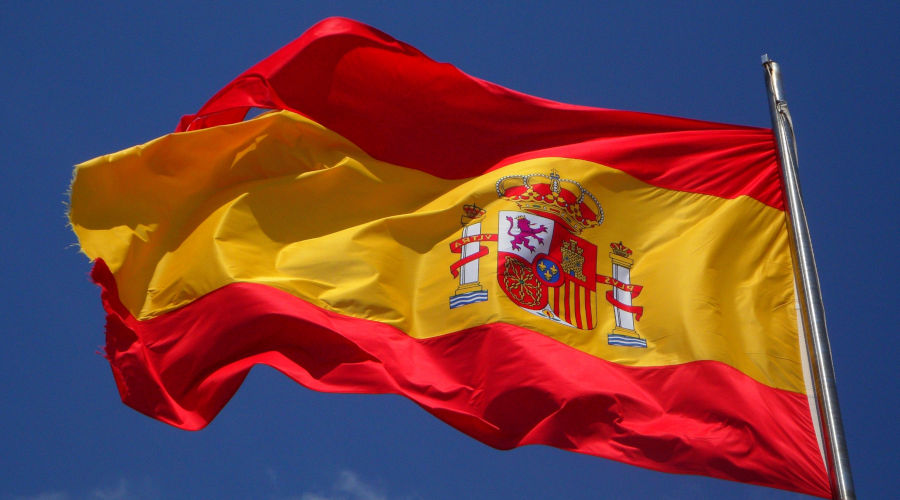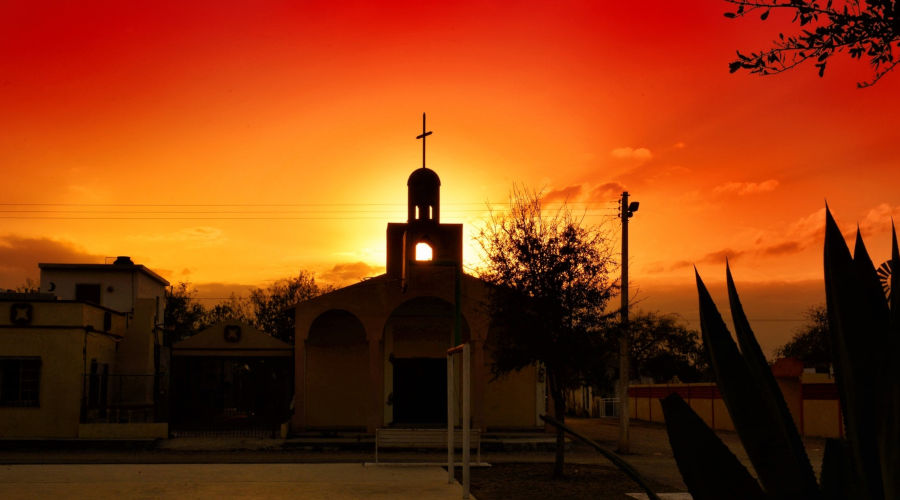All Types Of Spanish Music
You lot have probably heard that Spanish is, in terms of native speakers, the second nigh spoken language in the world, second only to Standard mandarin. However, did you know that the Castilian language is not the same all effectually the earth? Just as English is not the aforementioned in the United states, Ireland, England, Australia, South Africa, etc., there are many different types of Spanish. Probably more you can imagine!
And then what are they? And how does this happen?

Spanish Spanish is one of the dialects spoken in Spain.
Well, language does not exist in a vacuum: it is a social miracle. As such, we detect differences in speakers' pronunciation, grammar, and vocabulary according to social factors.
These factors include their:
- Place of origin
- Place of residence
- Ethnicity
- Gender
- Years of formal pedagogy
- Income
- Etc.
So maybe you'd like to know: what's the departure between Latin American Castilian vs. Kingdom of spain Spanish? or what'due south the divergence between Mexican Spanish and Colombian Castilian? How many different types of Spanish language are there?
Table of Contents
- The Main Types of Castilian Around the Globe
- What is the Best Spanish Dialect?
- Translating into Spanish: What Type of Spanish Should I Choose?
However, earlier nosotros tell you about the different Spanish dialects and accents, it is of import that we explicate some technical terms that a lot of people mistakenly use as synonyms. The below definitions are based on the works of linguists Arthur Hughes, Peter Trudgill, and Dominic Watt most variation in language:
- Dialect (or variety): "A dialect is a language variety distinguished from other varieties by differences of grammar and vocabulary. Standard British English language is, therefore, a dialect of English, just as the other standard dialects of the linguistic communication (Standard Scottish English, American English language, etc.) are, and all the non-standard dialects of the language likewise."
- Accent: "Accent, on the other hand, just refers to variations in pronunciation."
Need to Translate Into Spanish?
Get a Complimentary Quote
Equally per the definitions above, everyone speaks a dialect (or a language variety, which is a synonym), and a dialect need not be spoken with any particular accent. For case, someone born in Mexico who pronounces with a Mexican accent is totally capable of speaking the European Spanish dialect/variety (because 'accent' only concerns pronunciation, while 'dialect' concerns grammar and vocabulary).
Information technology is of import to mention, too, that the group of people who speak a certain dialect or variety are called "a speech community." Each dialect or language multifariousness is suited to its community of speakers, and each changes as that spoken language community and its demands evolve.

A convenience store with a Barcelona flag hanging in the window.
Go to top
The Main Types of Spanish Around the Globe
viii Types of Spanish
- U.s. Spanish
- Spanish Spanish
- Andalusian Castilian
- Murcian Spanish
- Canarian Spanish
- Caribbean area Castilian
- Rioplatense Spanish
- Equatoguinean Spanish
Even though regional differences between Castilian dialects are not as great as to cause unintelligibility among speakers from different areas, it is possible to carve up the globe'southward Spanish varieties into a few major groups:
- US Spanish: Did y'all know that the US has more than Spanish speakers than Kingdom of spain? That'south right! An astounding 41 one thousand thousand native Spanish speakers, and more than 52 million tin can speak the linguistic communication (if we count non-native speakers). The Castilian language has been present in the The states since the 15th century with the arrival of Spanish colonizers. Present, the US speech community speaks mainly Mexican Spanish, largely due to the huge number of Mexicans that have migrated to the United States during the by 2 centuries. Other Spanish dialects are also present in the U.s.a. territory, such as the ones spoken in the eastern coastal states and the diversity named by some linguists as New Mexican Spanish (present in New Mexico and a few regions of the state of Colorado).
Learn More
Desire to reach United states of america Hispanics with your products or services? Learn how in our article: The Untapped Marketplace: Hispanics of the United States.

41 1000000 native Castilian speakers live in the Us, and they speak a diversity of different dialects of Spanish.
- European Spanish: This is a wide term that refers to Spanish spoken in continental Spain and the Castilian islands. Some people refer to information technology also as 'Peninsular Spanish' or 'Spanish of Spain'. Believe it or not, there are actually dissimilar types of Spanish spoken in Spain. European Spanish can be subdivided into the below:
- Castilian Spanish: It developed from Latin after the Roman conquest of what is today Espana. Past the 15th century, Castilian Spanish had go the dominant dialect in the whole peninsula. In the years that followed, it became the language of the Spanish Empire in the New World, which is why you may hear some people refer to Castilian as 'castellano' instead of 'español'.
- Andalusian Castilian: It includes the dialects from Andalusia, Ceuta, Melilla, and Gibraltar, which are among the ones with more speakers in Spain due to the large population of this region.A curious fact is that most Latin American Spanish dialects, due to massive emigration from Andalusia to the Spanish colonies in Latin America, are thought to be based on Western Andalusian Castilian. In fact, the use of 'ustedes' instead of 'vosotros' for the 2nd person plural, as well as the use of seseo (also present in the dialects of the Canary Islands), are features nowadays both in Latin American and Andalusian Spanish varieties.
- Murcian Spanish: As explained in this Cambridge inquiry paper, "Murcian Spanish is a regional variety of Spanish spoken in the Comunidad Autónoma de Murcia in due south-eastern Spain. Information technology is unremarkably heard in the majuscule city, Murcia, with 450,000 inhabitants, situated in the Segura River apparently (Cardinal Zone), and in a number of towns like Cartagena, Yecla and Jumilla, Lorca and Águilas, and Caravaca and Calasparra."
- Canarian Castilian: It is the dialect from the Canary Islands, and information technology is really pretty similar to Western Andalusian Castilian and to Caribbean area Spanish (come across below).

Spanish Scenery—Castilian Spanish, Andalusian Castilian, and Murcian Spanish are Spanish dialects spoken on the European mainland.
- Latin American Spanish: Castilian is too the official language of near South American countries (except for Brazil and Guyana), of six Cardinal American republics, and of Mexico, Cuba, the Dominican Republic, and Puerto Rico.'Latin American Castilian' is used as an umbrella term considering Latin American countries present fewer variations in respect to one another than they do as a whole in respect to Spain. However, each country within Latin America (and each region within such countries) presents a characteristic dialect of its ain (Colombian Spanish, Peruvian Spanish, Bolivian Spanish, etc.).
- Caribbean Spanish: When yous consider that the colonists who settled in the Caribbean area islands came largely from the Canary Islands and Andalusia, the similarities between Caribbean, Andalusian, and Canarian Spanish commencement to make sense. The similarities include phonetic features (like consonantal weakening), syntax and morphology (similar non-inverted WH questions), and lexicon (vocabulary).
- Rioplatense Spanish: Typical of Argentina and Uruguay (the areas in and effectually the River Plate), Rioplatense Spanish is the blackness sheep of the Latin American continent because it differs significantly from the other dialects in the region.Some linguists attribute such a noticeable departure to the geographical proximity with Brazilian Portuguese and to the influence of the Araucano, Quechua, and Guaraní languages, but the actual reasons are non clear. The main features of Rioplatense Spanish include: a unique intonation influenced past Italian (explained by the large Italian settlements in the region); voseo (the employ of 'vos' instead of 'tú' for the second person singular, and of 'ustedes' instead of 'vosotros' for the second person plural, with all the associated verb inflections); sheísmo (a item pronunciation of ll and y); and loanwords from German, French, Italian, and English (due to the European emigration to Argentina at the cease of the 19th century and starting time of the 20th century).
Learn More
Thinking virtually investing or expanding your business in Latin America? Good idea! Get up to speed on the opportunities with our articles nigh The Dominican Republic (Why Paradise Is The Perfect Identify To Invest Your Money) and Mexico (Pros And Cons Of Doing Business organisation In Mexico — Should You Get?).

An aerial view of a cityscape in Mexico. The dialect of Spanish spoken in Mexico differs from that spoken in Spain.
- Equatoguinean Spanish: It is the multifariousness of Spanish spoken in Equatorial Republic of guinea, and the just Castilian variety or dialect that holds national official status in Sub-Saharan Africa. More than similar to European Spanish than to the Latin American Spanish dialects, its pronunciation and some of its vocabulary has received the influence of German clearing and of native Guineans.
Are You Traveling With Pets?
Larn how to do international travel from our article: A Comprehensive Guide To International Travel With Dogs.
Go to meridian
What is the All-time or Most Correct Spanish Dialect?
We cannot compare linguistic communication varieties in terms of which one is better.
There are misconceptions about this matter, held mainly by non-linguists, and which have the form of unsubstantiated claims.
Recollect we said everyone speaks a dialect?
It is a linguistic fact that all dialects are equally constructive in expressing ideas amongst the correct groups of people. So where does the notion that certain dialects of Castilian are 'amend' or 'more correct' stem from?
Well, such misconceptions have less to do with the inherent qualities of each variety than they do with a struggle over authorisation and power.
For instance, many people will argue that British English language, as the language of the British Empire, is 'the real deal' and that all other varieties are 'a deformation of British English language'. Something similar happens with every 1 of the most widely spoken languages of the world, and Spanish is not an exception.
While it is true that all types of Spanish share a mutual historical root, claiming that one of them is 'the original type' and that all others are 'less correct' versions of it is just incorrect from a linguistic point of view. But that is a topic for another commodity.
What you really desire to know is what blazon of Spanish is right for your content. Let's answer that question below.

When translating content into Spanish, what variety of Spanish should you cull? It all depends on the intended audience too every bit the content matter. More info beneath.
Get to top
Translating into Spanish: What Type of Spanish Should I Choose?
The only person who holds the answer to this question is y'all. What is the purpose behind your determination to translate your documents?
- Do you want to make your website rank college on Google?
- Do yous want more website visitors to buy a product from your online store?
Marketers: Here'due south a guide on how to organize the URL structure of a multilingual website
Read it here: The All-time URL Structure for International SEO [Complete Guide]
- Do yous need legal paperwork in the target language for a specific business transaction?
- Take you produced a video and you lot want to have information technology subtitled for YouTube?
Demand to Translate Into Spanish?
Get a Free Quote
Here are our recommendations.
Employ Local Types of Spanish Linguistic communication for Marketing
When it comes to marketing, for example, there is substantial evidence that localizing a text into the regional dialect yields the all-time financial results because conversion is higher.
Readers must believe that the text was written locally. They get a feeling of trust—that your company knows their culture and needs.
Further, with this approach the content takes into account the target civilisation and is adapted for local consumption.

For translation of marketing materials exist certain to cull the local multifariousness of Spanish
Use And then Called "Neutral" Spanish for Informational Content
However, other types of texts outside the field of marketing, like a medical prospect, can be translated into what some people incorrectly telephone call 'neutral' or 'universal' Spanish.
While there is actually no such thing as a 'neutral' or 'universal' variety, the person in charge of your translation can certainly cull the words that are most recognizable to the greatest number of Spanish speakers who will exist reading the translation. The accent, therefore, is on intelligibility rather than on cultural appropriateness, and this is an option that works with only a few types of texts.
Like the Commodity?
Share with all your friends by clicking on a social sharing button below.
Still Not Sure What Blazon of Spanish to Choose?
You lot may even so exist unsure of what dialect or type of Spanish you should cull.
No worries!
No one knows improve what blazon to choose than those who are professional linguists.
Earlier y'all make up one's mind which i of all the different types of Spanish y'all will choose for your translation, go far touch on with usa and explain your project requirements to i of our project managers.
Along with our adept translators we tin can recommend the best approach for your particular needs.
María Scheibengraf, currently based in London, is an English>Spanish Translator, Interpreter, Transcreator, Proofreader, and Copywriter with eight+ years of experience.
Are you a Spanish speaker?
Is there a unique Spanish expression or maxim in the region you come from? Leave united states of america a comment below to let usa know!
Get free translation tips direct to your inbox!
- Get tips on how to translate your website, marketing materials!
- Get actionable advice to help you succeed with international business.
- Be the kickoff to access gratis linguistic communication and management tools.
All Types Of Spanish Music,
Source: https://ivannovation.com/blog/8-types-of-spanish-how-to-choose-for-your-translations/
Posted by: morenoknestagave36.blogspot.com


0 Response to "All Types Of Spanish Music"
Post a Comment